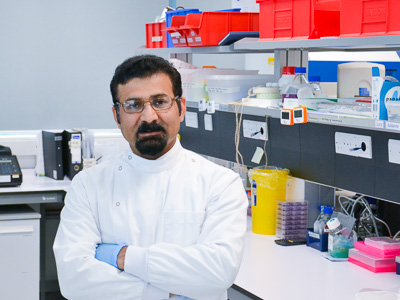When you're examining the cells what are you looking for?
I'm looking at what types of fuel immune cells use to activate them, or drive them to keep fighting infections. One of my projects that's funded by the Medical Research Council looks at the presence of specialised types of lipids within the fluid around the lungs, and understanding how uptake of those lipids may change the way that the cells work and to maybe improve inflammation - so to calm it down, or make a reaction turn off - , or how the lipids might make those cells change their phenotype so they could become more anti-asthma or anti-cancer.
What have you seen that has changed and got better and improved over your career from starting out to where you are now?
Our ability to sequence cells. We can now understand what RNA is being made by every single cell in pretty much any tissue. We can now break down tissue and understand what's going on a single cell basis.
Are you hopeful for the future because of some of the research that you're involved?
Yes! I'm one of the most hopeful people you'll ever meet.
We might not know how the work we do at the bench will have an impact or contribute to the wider body of knowledge, but we have to keep doing these things because the information we find does result in breakthroughs. Being able to make the COVID vaccine in under 18 months was phenomenal, and that was based on obscure technology utilising RNA that happened decades ago. And the person didn't get much recognition for it at the time but that's the reason that we can now make those vaccines so quickly, and we have those pipelines available.
Any disease you pick, we now know so much more about it than we did a decade ago or twenty years ago. Everything we do adds to that wider body of knowledge.



